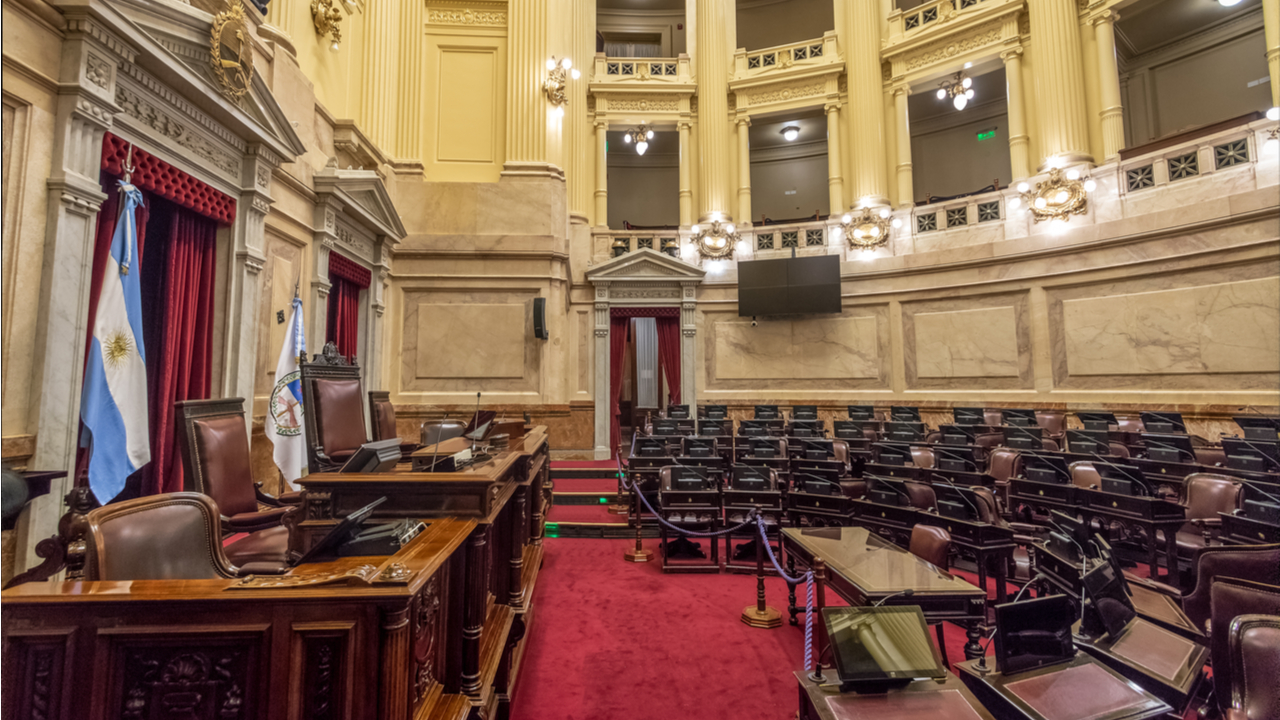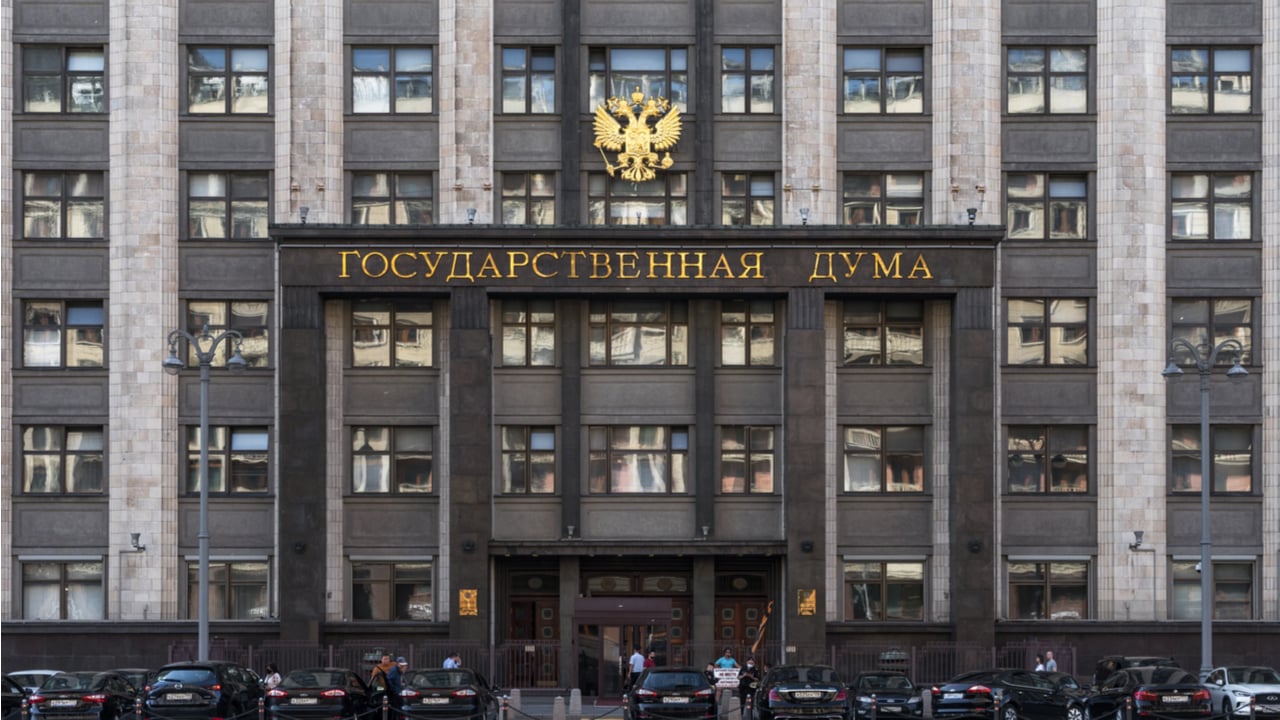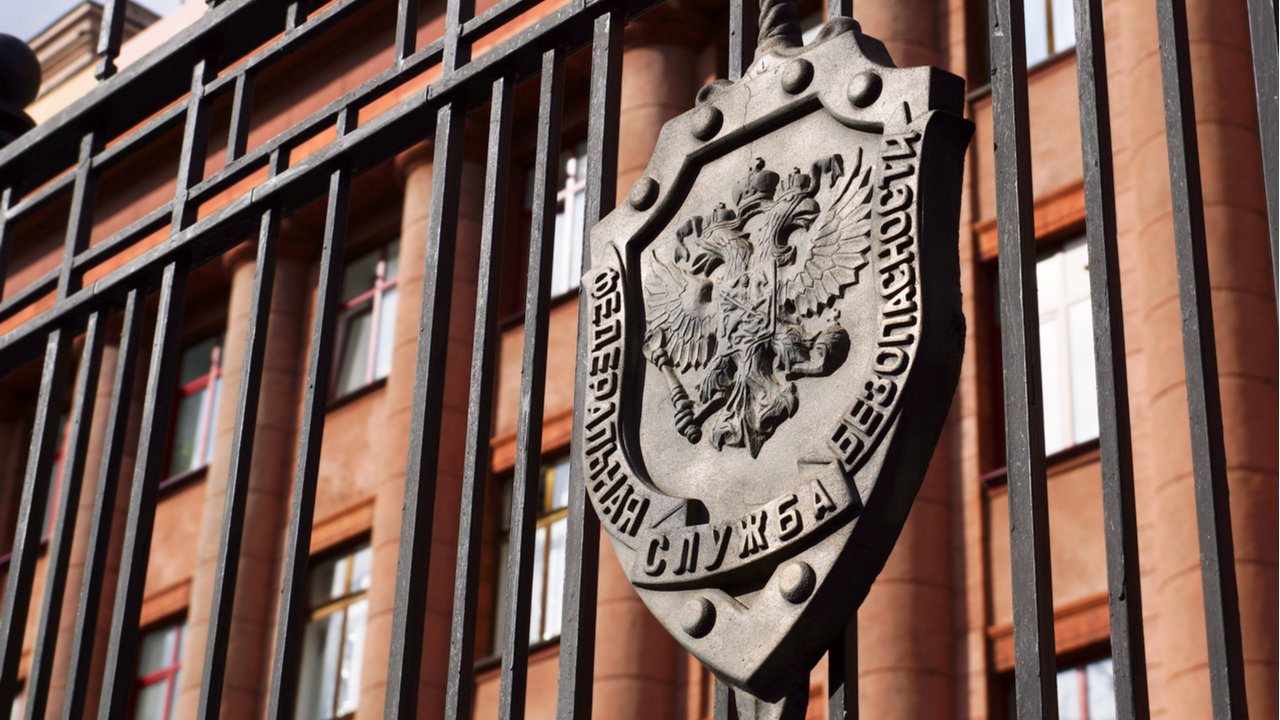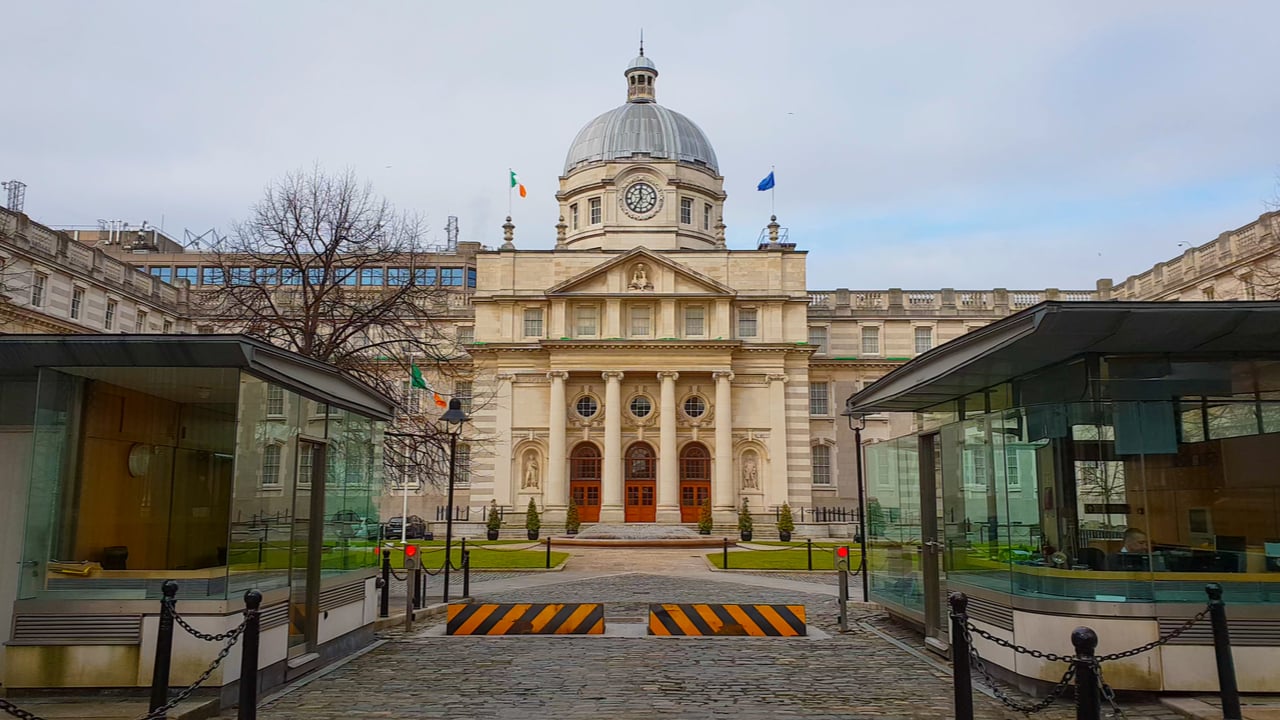 Cryptocurrencies will be eventually legalized, a member of the Russian government has opined. The question is when this will happen, Trade Minister Denis Manturov stated as new crypto-related legislation advanced in the State Duma this week. Crypto Legalization Is Current Trend, Russian Minister Acknowledges Cryptocurrency can be legalized in the Russian Federation, according to a […]
Cryptocurrencies will be eventually legalized, a member of the Russian government has opined. The question is when this will happen, Trade Minister Denis Manturov stated as new crypto-related legislation advanced in the State Duma this week. Crypto Legalization Is Current Trend, Russian Minister Acknowledges Cryptocurrency can be legalized in the Russian Federation, according to a […] The Argentinian Senate has approved a bill that would allow the government to tax non-declared assets held in foreign countries by citizens of the country. This includes stocks, properties, bonds, and even cryptocurrencies. The purpose of the legistlation would be to collect more funds to pay the $45 billion debt that Argentina has with the […]
The Argentinian Senate has approved a bill that would allow the government to tax non-declared assets held in foreign countries by citizens of the country. This includes stocks, properties, bonds, and even cryptocurrencies. The purpose of the legistlation would be to collect more funds to pay the $45 billion debt that Argentina has with the […]
The effort will include issuing guidance for NFTs and ICOs, expanding infrastructure and supporting CBDC research.
The administration of the newly-elected President of South Korea, Yoon Suk-yeol, wastes no time in its drive to maintain the country’s stature as a center for innovation as it hopes to roll out comprehensive crypto legislation in 2023 and institutionalize the sector by 2024.
On May 11, South Korean newspaper Kukmin, citing a leaked governmental document, reported that the administration is looking to introduce the “Digital Asset Basic Act” (DABA) in the next year and to follow it up with more legislation by 2024. The bill is part of the 110 policy aims the new President introduced earlier this year.
The bill will be drafted in accordance with international norms and will rely on the experience of the world's largest economies as the local Financial Stability Board (FSB) will cooperate with the Basel-based Bank for International Settlements (BIS) and the U.S. and E.U. regulators.
While there aren’t many details, what is known looks quite optimistic for the industry. The government plans to expand the existing infrastructure for crypto-fiat transactions, allowing more banks to create their own platforms for fiat-crypto exchange. Currently, there are only 4 banks in the country that have this capacity. Also, the South Korean authorities expect to institutionalize nonfungible tokens (NFTs) and introduce a regulator framework for ICOs.
The issuance of a central bank digital currency (CBDC) is also on the table. The Bank of Korea completed the first phase of its mock testing in January 2022.
The Yoon administration already confirmed the validity of the leaked document, noting, though, that this draft is not the final one.
On May 3, Yoon Suk-yeol announced he would push to defer taxation on crypto investment gains until the Digital Asset Basic Act is enacted, which means at least until 2024. Under the new crypto taxation rules, the government will levy a 20% tax on crypto gains above $2,100 per year.
 Authorities in Georgia are now holding discussions with industry representatives to finalize a bill designed to regulate coin trading, among other crypto-related activities. The legislation will be presented to the Georgian society this fall at the latest, a top central bank official announced. Central Bank of Georgia Talks Crypto Regulation With Market Players The National […]
Authorities in Georgia are now holding discussions with industry representatives to finalize a bill designed to regulate coin trading, among other crypto-related activities. The legislation will be presented to the Georgian society this fall at the latest, a top central bank official announced. Central Bank of Georgia Talks Crypto Regulation With Market Players The National […]
The “anti-technology” bill could accelerate mining operators' switch to renewable energy, experts say.
On April 26, the State of New York put itself at the forefront of the regulatory struggle with crypto, as its Assembly voted for a two-year moratorium on crypto mining operations that use energy generated by fossil-fuel power plants. Depending on how one looks at it, this development could either signal a new alarming legislative trend or a trigger that would accelerate the digital asset industry’s movement toward a more sustainable path.
The lower chamber of the NY state legislature, the Assembly, passed a bill that would put a two-year hold on any new mining operations using the proof-of-work (PoW) consensus mechanism, as well as on the renewal of existing permits.
The bill, S6486D/A7389C, is marketed by its sponsors as a necessary act of compliance with the 2019 Climate Leadership and Community Protection Act and its goal to reduce greenhouse gas emissions by 40% by 2030. The bill also mandates a “generic environmental impact statement” to be made by the Department of Environmental Conservation (DEC), which should evaluate the energy consumption and greenhouse gas emissions of PoW miners and their impact on public health.
Next up for the bill is a vote in the upper chamber, the State Senate, after which, if approved, it would go to Governor Kathy Hochul, who can either veto it or sign it into law.
The advocacy group Blockchain Association believes that the “anti-technology” bill can still be sunk in the Senate. The heated debate in the Assembly lasted for three hours, and the vote ended up far from unanimous: 95 in favor, 52 against.
The passage of the bill triggered an alarm from the crypto community. The Crypto Council for Innovation shared a concern that the initiative could put innovation on the back burner. Kyle, Schneps, director of public policy of Foundry, underlined that the initiative is singling out only one industry out of many operating on fossil fuels in the state, and the decentralized finance (DeFi) Education Fund emphasized legislators’ refusal to acknowledge the benefits of the industry.
The sponsor of the bill, environmental and housing rights activist Anna Kelles dismissed these arguments in a Twitter discussion with the head of policy of Blockchain Association Jake Chervinsky. She pointed out that the bill is “extremely narrow in scope” and will only pertain to “large-scale crypto mining” in power plants that use fossil-based energy sources. Moreover, the moratorium will apply only to mining operations at decommissioned power plants with the single aim of preventing the large-scale relaunch of such plants that could be incentivized by crypto mining profitability. By her estimate, there are 49 such facilities in the State of New York.
As John Belizaire, CEO of green data center developer Soluna Computing, noted to Cointelegraph that the moratorium will certainly “have a cooling effect” on crypto mining in the state. He believes the state is taking a “prudent action” to study the issue of environmental effects as the growth of the industry has raised concerns about whether it is prolonging the life of legacy fuels rich with carbon:
“We’d encourage the state to participate in open dialogue with forward-looking companies to learn how the crypto mining industry could accelerate New York’s renewable energy development.”
John Warren, CEO of GEM Mining — which claims its 32,000 miners to be 97% carbon neutral — commented to Cointelegraph that the passage of this bill reveals that the New York legislature is “dominated by radical and fringe elements” who are “ignorant to a new and innovative sector of finance and technology.” Warren said:
“It is no wonder why so many citizens and businesses are fleeing New York in order to pursue great opportunities in common sense business-friendly states. As a graduate of New York University and someone who loves New York, it is painful to see the state implement policies that mirror China and Russia.”
The experts tend to agree on the possible effects of the bill beyond the boundaries of New York State. Warren is convinced that the issue represents a unique case of “a radical outlier” and hence will have little effect on the United States’ role as the global leader in cryptocurrency mining:
“We’ve recently seen the opposite as many legislators have openly encouraged crypto operations in their states and even gone so far as to enact legislation in favor of crypto. Take Georgia, for example.”
Belizaire also found it hard to name other states with similarly hostile policies toward miners. He brought up the example of North Dakota as a state that saw the job creation potential of crypto mining and chose to partner with the industry:
“The NY ban seems to send a unilaterally negative message even before a conversation takes place. Unfortunately, this emboldens the narrative that the PoW protocol is bad for the planet.”
Regardless of the vote’s outcome, the New York moratorium is unlikely a case of a single state’s allergy to crypto mining. Coming from an environmental activism background, Kelles repeatedly highlighted that her concern is for the possible influence on New York State’s environment, not the crypto industry at large. It resembles a larger discussion about PoW mining that is happening on both national and international levels.
In October 2021, more than 70 NGOs have co-signed a letter to the U.S. Congress where they called legislators’ attention to the numerous instances of fossil-fuel plants’ relaunch across the country.
As Steve Wright, former general manager of Chelan County — Washington’s public utility district — explained at the congressional hearing in January 2022, miners’ interest in dormant fossil fuel facilities is driven by a simple market mechanism, which means there’s no rational reason for them to stop exploring such possibilities.
In that sense, the environmental push from the New York State legislators is an instance of a larger discussion that will inevitably persist around crypto mining and fossil fuels. While the New York bill doesn’t contain a single word about using renewable energy in mining, it could, in fact, incentivize the usage of green energy — Warren, who doesn’t perceive this measure as proper, still admitted that such a possibility exists.
Belizaire commented:
“I think the moratorium will have mining companies give a second thought to using fossil fuels to power their operations. New York’s mission is clear: It’s all in on renewables. PoW crypto mining needs to get on the bus.”
Crypto mining, he believes, could even become a “special ingredient” of the larger green energy shift.
 A draft law tailored to regulate cryptocurrency mining has been filed with the lower house of Russian parliament, the State Duma. The legislation provides a legal definition for the extraction of digital currencies and envisages the establishment of a register for miners. Russian Lawmakers to Review Legislation Enforcing Rules for Crypto Mining Sector The draft […]
A draft law tailored to regulate cryptocurrency mining has been filed with the lower house of Russian parliament, the State Duma. The legislation provides a legal definition for the extraction of digital currencies and envisages the establishment of a register for miners. Russian Lawmakers to Review Legislation Enforcing Rules for Crypto Mining Sector The draft […]
The Digital Commodity Exchange Act would give the commodities regulator the authority to determine rules for cryptocurrency developers and exchanges offering spot trading.
A bipartisan group of lawmakers in D.C. introduced an updated bill on April 28 to regulate cryptocurrency developers, dealers, exchanges, and stablecoin providers, bringing them under the regulatory control of the United States Commodity Futures Trading Commission (CFTC).
The Digital Commodity Exchange Act of 2022 (DCEA) was re-introduced to Congress by Republican Representatives Glenn Thompson and Tom Emmer with support from Democrat co-sponsors Darren Soto and Ro Khanna.
The updated version includes a section covering stablecoin providers, who can register as a “fixed-value digital commodity operator.” These operators would be obligated to share how the stablecoin operates, retaining records for the regulator along with providing information on the assets backing the “fixed-value digital commodity” and how they’re secured.
As per the last bill, the DCEA would authorize the CFTC to register and regulate cryptocurrency exchanges that offer spot trading of crypto commodities — those that allow traders to buy cryptocurrencies at the current price.
The DCEA would not affect the Securities and Exchange Commission’s (SEC) regulatory power over digital asset securities offerings, but instead classify cryptocurrencies that are not securities as digital commodities to be brought under regulation by the CFTC.
Crypto exchanges would also be subject to the same rules as other commodity providers for listing new cryptocurrencies on their platforms. Exchanges must demonstrate the crypto is “not readily susceptible to manipulation” through analyzing its mechanics such as its “purpose, functionality, governance structure, distribution, and participation.”
Developers of cryptocurrencies could also voluntarily register with the CFTC and make disclosures required for public trading and listing on an exchange. A summary of the act says registration would ensure accuracy of records and public information about the crypto is standardized and could help facilitate public exchange listings.
Related: Self-regulatory organizations growing alongside new US crypto regulation
Regulatory uncertainty has afflicted cryptocurrency businesses operating in the U.S.,and in a release the co-sponsors of the bill said it would help with easing the prevailing uncertainty of the current rules, with Soto saying:
"Regulatory clarity is critical for digital commodity markets to promote innovation and consumer protection. Innovators are spending up to fifty percent of start-up costs on legal fees because of the current regulatory ambiguity between what is a security and what is a commodity.”
Industry advocacy body the Crypto Council for Innovation called the bill “a step forward” as it creates a “new atmosphere of opportunity without stifling innovation” adding:
“This is one of a few bills introduced that the industry should watch closely.”
In February, CFTC chair Rostin Behnam told lawmakers during a Senate hearing on digital assets that the Commission had a lack of authority to enforce the crypto space due to differing regulations.
Behnam called the crypto space “in essence…an unregulated market” and said more regulatory authority for the CFTC “will only allow us to see what’s going on underneath the hood.”
The bill will need to move forward to a hearing by the Agriculture Committee, if passed by the House, it will be then taken up by the Senate Agriculture Committee for discussion.
 Russian Ministry of Finance has accepted a number of crypto regulatory proposals submitted by the country’s law enforcement departments. They cover a range of related areas, including the seizure of digital assets and the reporting of information on cryptocurrency transactions. Finance Ministry of Russia Backs Regulations Proposed by Law Enforcement Agencies Russia’s Ministry of Finance […]
Russian Ministry of Finance has accepted a number of crypto regulatory proposals submitted by the country’s law enforcement departments. They cover a range of related areas, including the seizure of digital assets and the reporting of information on cryptocurrency transactions. Finance Ministry of Russia Backs Regulations Proposed by Law Enforcement Agencies Russia’s Ministry of Finance […] The government of Ireland is preparing to ban political parties from accepting campaign donations in cryptocurrency. The move aims to block the perceived threat of Russian interference in the European nation’s elections against the backdrop of a clash between the West and Moscow over the war in Ukraine. Ireland to Limit Foreign Political Support for […]
The government of Ireland is preparing to ban political parties from accepting campaign donations in cryptocurrency. The move aims to block the perceived threat of Russian interference in the European nation’s elections against the backdrop of a clash between the West and Moscow over the war in Ukraine. Ireland to Limit Foreign Political Support for […] Russia’s recently revised bill “On Digital Currency” limits crypto purchases for non-qualified investors while providing legal ground for some cryptocurrency payments, according to local media. The draft law, proposed by the Russian finance ministry, also introduces strict requirements for platforms operating with digital assets. Russian Citizens Who Don’t Pass Test to Buy Only $600 Worth […]
Russia’s recently revised bill “On Digital Currency” limits crypto purchases for non-qualified investors while providing legal ground for some cryptocurrency payments, according to local media. The draft law, proposed by the Russian finance ministry, also introduces strict requirements for platforms operating with digital assets. Russian Citizens Who Don’t Pass Test to Buy Only $600 Worth […]